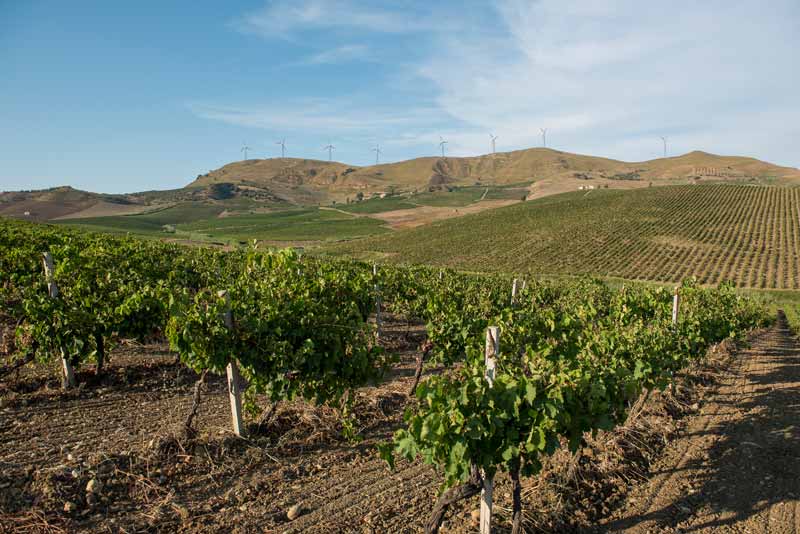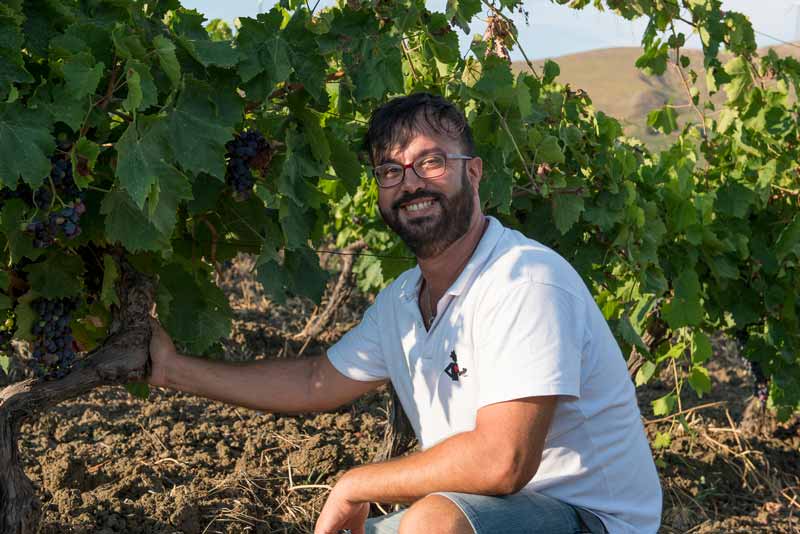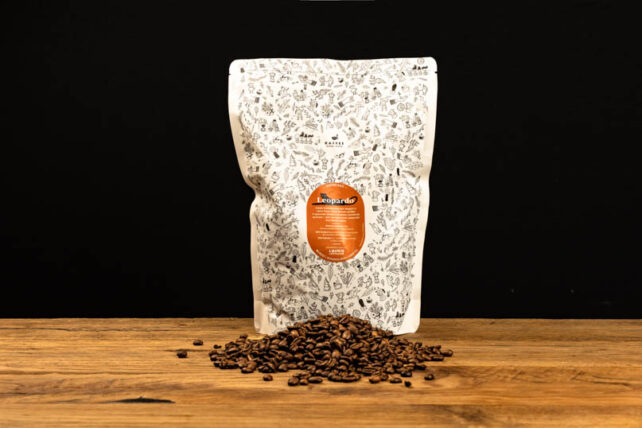Subtotal: CHF 43.80plus shipping surcharge CHF 4.90 (not applicable from a value of goods of CHF 150 per origin)
Natural wine from Sicily

Taking a step back and still moving forward - that's natural wine. But what does that actually mean? The term "natural wine" is neither protected nor precisely defined. Essentially, it is about playing into nature's hands as much as possible throughout the entire wine production process and practising organic viticulture with as few chemical substances as possible. But even at Valdibella, it is not possible to do it entirely without aids. Especially after the rain - when the Sicilian sun shines on the wet vine leaves - the risk of mildew infestation is high. This fungal disease kills leaves, fruit and, if nothing is done, the entire vine. In conventional viticulture, large quantities of fungicides are regularly sprayed as a preventative measure to combat mildew. Valdibella, on the other hand, tries to use only a minimum of sulphur and copper.

In processing, natural wines are characterized above all by spontaneous fermentation. This is similar to the production of sourdough bread. A "starter" is fermented from 5-10% of the harvested grapes for around 10 days. This active mix of natural yeast populations and bacteria present in the air and in the wine cellar is then used to ferment the rest of the grapes. This spontaneous fermentation then shapes the taste of the wine - making it even more unique. However, this fermentation process is always a balancing act, says oenologist Nino von Valdibella. It requires a lot of experience and strict controls. In order to get the fermentation process under control, considerable amounts of sulphur are sometimes added in conventional wine production. Valdibella keeps the addition of sulphur as low as possible and thus achieves around a quarter of the permitted sulphur limits for organic wine. For three wines, they even do without it altogether. And even after fermentation, Valdibella does not add any fining or filtration aids such as the milk product casein. This makes our natural wine drinkable for vegans too.

 Espresso «Leopardo», Roasted Beans (1kg)
Espresso «Leopardo», Roasted Beans (1kg)